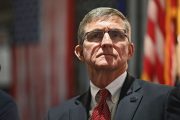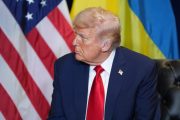Representatives from Iran and six world powers are meeting in Geneva on October 15 and 16 to discuss Iran’s nuclear program. The powers include the United States, the United Kingdom, France, Germany, Russia, and China.
ABC News reported that Deputy Foreign Minister Abbas Araghchi, identified as a senior member of Iran’s negotiating team, made a statement on Sunday that Tehran will bring a new proposal to the talks intended to remove any doubts that Iran’s nuclear program is peaceful. Araghchi told Iran’s student news agency, ISNA, that his nation should “enter into a trust-building path with the West.”
“In their point of view trust-building means taking some steps on the Iranian nuclear issue, and in our view trust is made when the sanctions are lifted,” said Araghchi. ABC News explained that Araghchi’s reference was to sanctions imposed by the UN, as well as other international economic sanctions imposed because of Tehran’s refusal to conform its nuclear activities to international standards.
Iran’s negotiating team will be led by Foreign Minister Javad Zarif (shown at right), a veteran diplomat who was a member of the team that negotiated a cease-fire with Iraq in 1988.
A report in VOA (Voice of America) quoted a statement from Secretary of State John Kerry, who said that the upcoming talks are an indication that the window for diplomacy over Iran’s nuclear program is “cracking open.”
VOA also reported that “world powers called for Iran to give up its existing stockpile of uranium enriched to 20 percent purity and send it abroad. Uranium of that purity is a short technical step away from being converted to weapons-grade material.”
The latter statement is patently false, which many will find disturbing, since VOA is the official external broadcast institution of the U.S. government. As The New American reported in the article, “U.S. Intelligence: No Evidence Iran Building Nukes”:
Of course, it is widely known that Iran is enriching uranium. The regime boasts about it. But nuclear missiles and weapons-grade material require enrichment of around 90 percent — a long way away from the less-than-20-percent purity the Iranian government is known to be working on.
The article went on to note that “members of the immensely powerful clique known as the Council on Foreign Relations, for example, have been beating the war drums with increasing ferocity for years. And in the CFR’s most recent issue of Foreign Affairs, the organization’s flagship journal, Prof. Matthew Kroenig openly called for a U.S. war against Iran. More than a few top Western officials have issued similar battle cries.”
Suggesting these powers behind the scenes are still at work, VOA reported that former Secretary of State Hillary Clinton (whose husband, Bill, is a CFR member) commented on the upcoming talks while speaking recently at London’s Chatham House.
“In Geneva next week, I will be most interested in hearing if the Iranians are putting any meat on the bones of their hope that there can be a negotiation that leads to a resolution that is satisfying to them and acceptable to us. And I just think we don’t have any way of knowing that yet,” said Clinton.
Chatham House, also known as the Royal Institute of International Affairs, is the British sister institute of the U.S. Council on Foreign Relations, the two organizations being founded in 1920 and 1921, respectively. They have a long history of cooperating on establishing and maintaining an internationalist, interventionist foreign policy in both nations.
Fox News reported today that Yuval Steinitz, identified as the Israeli minister responsible for monitoring Iran’s nuclear program, was optimistic about the Geneva talks, asserting that firm Western pressure can deter Iran from pursuing nuclear weapons. According to Fox: “Steinitz told reporters that Iran needs an agreement to save its faltering economy, and talks in Geneva offered perhaps the last opportunity for a diplomatic solution.”
Israel is widely believed to possess a stockpile of nuclear weapons, but since it has kept the details secret, no one is certain how many. A report compiled by CNN estimates that Israel has 80 nuclear warheads.
BBC News reported on May 26, 2008 that former President Jimmy Carter, when answering a question about U.S. foreign policy toward a possible nuclear-armed Iran, stated that any country such as Iran that was newly armed with atomic weapons faced overwhelming odds.
“The U.S. has more than 12,000 nuclear weapons; the Soviet Union (sic) has about the same; Great Britain and France have several hundred, and Israel has 150 or more,” Carter said.
A report from the Iranian-based Fars News Agency on October 14 cited Cardinal Albert Malcolm Ranjith, the Catholic Archbishop of Colombo, Sri Lanka, who asserted that the West has remained silent about Israel’s nuclear stockpile, while imposing sanctions against Iran for its civilian nuclear program.
“We are against double-standard policies that [Israel] has stockpiled some 200 nuclear warheads while Iran has been exposed to arbitrary sanctions for its legitimate rights in making use of peaceful nuclear energy,” the Sri Lankan religious leader said in a meeting in Colombo on October 14 with Ayatollah Mohammad Ali Taskhiri, an advisor to Ayatollah Seyed Ali Khamenei.
“We attach importance to Islam and the Islamic Republic of Iran and believe that the country should play active role at international scene. We oppose the US hegemony,” Ranjith said.
A report from Bloomberg News suggested that the ability of Iran’s negotiators to arrive at an agreement that is acceptable to all parties back home might be hampered due to rivalries in Iran. The report noted that Foreign Minister Zarif was recently hospitalized for stress resulting from being misquoted by Iranian newspapers taking a hardcore line against Iran reaching out to the West. He said his poor treatment in the press was part of a backlash against President Hassan Rouhani’s efforts to promote U.S.-Iranian reconciliation at the United Nations last month.
Photo of Iranian Foreign Minister Javad Zarif speaking to EU High Representative for Foreign Affairs Catherine Ashton in Geneva: AP Images
Related articles:
U.S. Intelligence: No Evidence Iran Building Nukes
Is It Nuts to Let Iran Go Nuclear?
Mossad Spy Chief: Iran Nuke Not “Existential Threat”
Iran Blames United States, Israel for Assassination of Nuclear Scientist
U.S. Sanctions State-owned Central Bank of Iran
Iran: Christians, not Nukes, Are the Real Story
Neocons Don’t Believe Their Own Anti-Iran Propaganda
U.S. Gave Iran-friendly Regimes Nuclear Technology
Has War Against Iran Already Begun?
Panetta Says No Nukes for Iran Yet, But Calls for Continued Sanctions
Is Alleged Iran-backed Assassination Plot Ploy for War?
Iran to Release American Prisoners
Al-Qaeda & the West Back Syrian Rebels Against Assad
Potential Syria Intervention May Lead to Wider War




